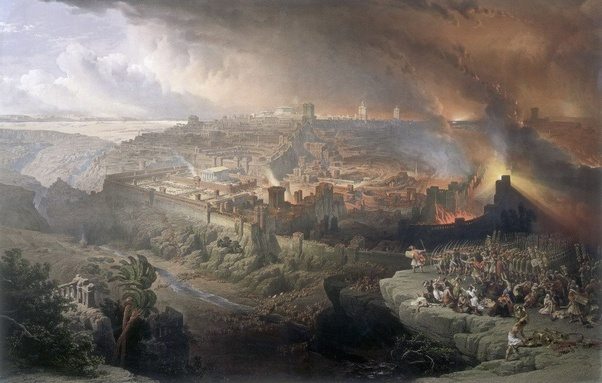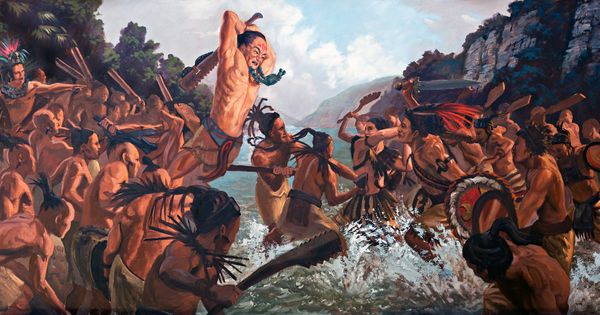Question
Gramps,
What is meant by Matthew 24:19 that says woe unto the women that give suck in those days?
Thanks,
Matthew
Answer
Dear Matthew,
This verse references mothers who are still breastfeeding their children. The subject of the first half of Matthew 24 is the “abomination of desolation” which includes the destruction of Jerusalem in 70 AD. When that destruction came, there wasn’t going to be time to “return to take anything out of [your] house”, nor to “return back [from the fields] to take [your] clothes”, but rather the command was to “flee into the mountains”. (Joseph Smith-Matthew 1:12-16). With this flight in mind, Jesus calls out two groups that would be disadvantaged in a flight from ruin: pregnant women, and women with young children (too young to care for themselves).
Josephus describes this period. Immediately before Titus arrived to lay siege on Jerusalem, a civil war broke out between 3 factions. Whenever the weakest faction found itself ahead, assuming such fortune to be temporary, they burned the storehouses to reduce the provisions available to the other groups. In the midst of this internal fighting, Titus arrived and cut off access to the warring city. This prevented anyone from bringing in fresh food, and with so much of the stored food destroyed, the city was in a pitiable state. Worse, the leaders formed bandit gangs to rifle through houses and take any food they could find (didn’t matter if someone was still living there or not). They would torture those that looked fed in an effort to secure their food supply. Terrible accounts are recorded of just how desperate people became. One is particularly illustrative, on the subject of mothers of very young children, but I will only provide a reference rather than describe the disgusting details (See, for instance, War of the Jews 5.10.3). For almost half a year the city was under siege before it was finally conquered and destroyed (War of the Jews 6.3.4).
Once Jerusalem broke into factions, the die was cast. They couldn’t just ride this out like the other seditions, because little did they know that before the dust cleared from their internal skirmish Rome would knock on their door. If they did not flee at the first hint of trouble it was too late. Christ warned His disciples on the Mount of Olives of this tragedy. But a mass exodus of Christians 40 years before the crisis may have appeared foolish and premature. Instead, the Lord did “nothing [until] he reveal[ed] his secret unto his servants the prophets.” (Amos 3:7). Eusebius records:
“But the people of the church in Jerusalem had been commanded by a revelation, vouchsafed to approved men there before the war, to leave the city and to dwell in a certain town of Perea called Pella [in modern Jordan]. And when those that believed in Christ had come thither from Jerusalem, then, as if the royal city of the Jews and the whole land of Judea were entirely destitute of holy men, the judgment of God at length overtook those who had committed such outrages against Christ and his apostles, and totally destroyed that generation of impious men.” (History of the Church 3.5.3).
The saints who listened to their prophets, seers, and revelators, fled the city and found safety and peace in keeping the commandments.
Gramps







